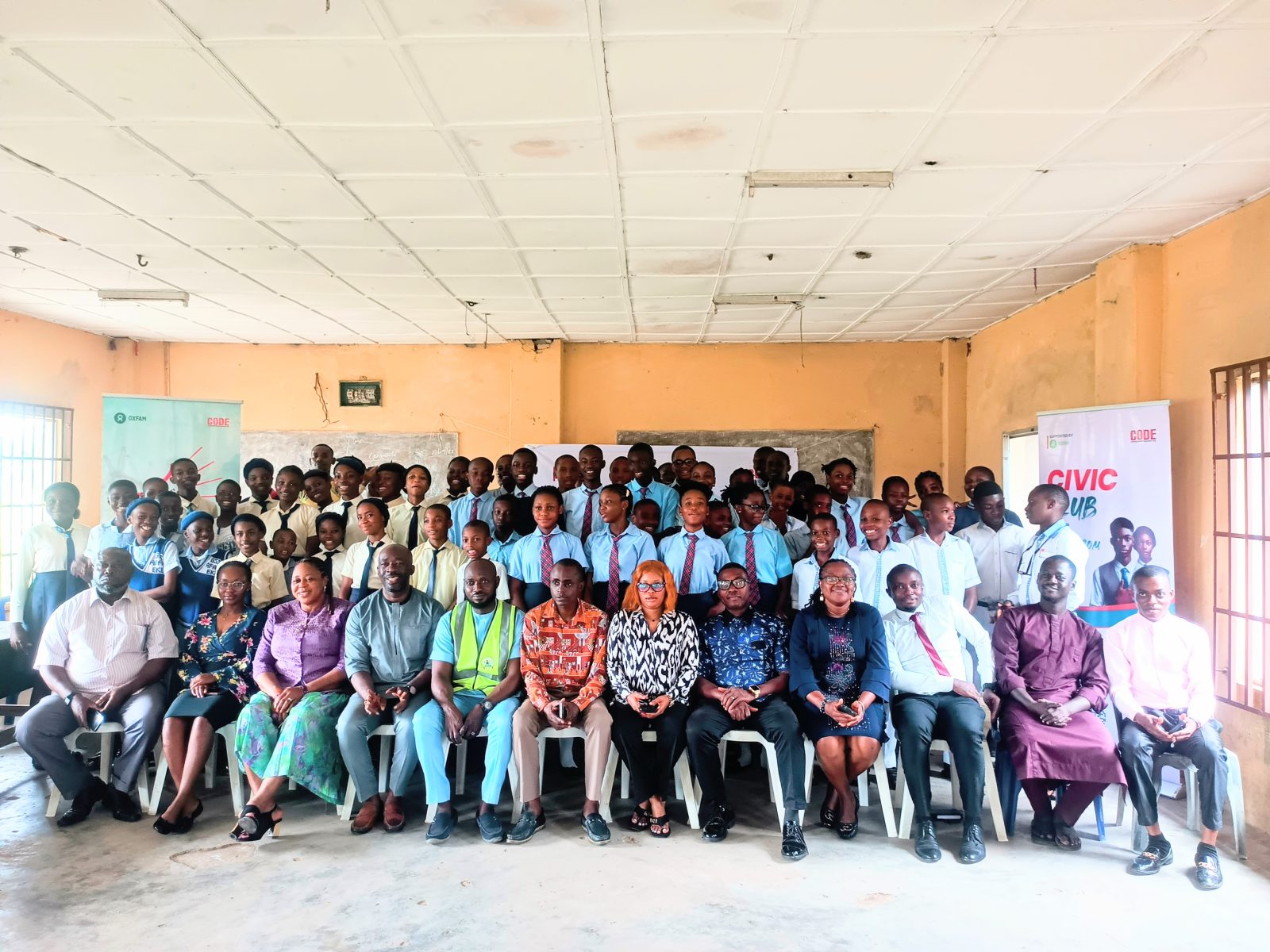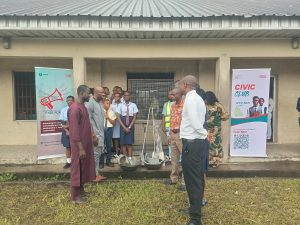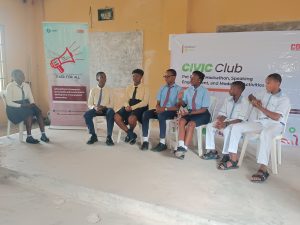CODE Empowers A’Ibom Students with Recycling Projects, Civic Clubs to Drive Youth Engagement, Environmental Stewardship

By Ekemini Simon
To foster youth leadership, civic participation, and environmental responsibility, Connected Development (CODE), with support from Oxfam in Nigeria, has trained secondary school students in Akwa Ibom State on how to carry out civic youth engagement and also demonstrate environmental stewardship.
The organisations have also empowered Akwa Ibom Secondary schools with recycling projects and equipment for school gardens.
The initiative by CODE is part of a series of civic engagement activities under the Power of Voices Partnership – Fair for All Project, drawing secondary school students and education stakeholders together.
The event, held on Tuesday at QIC Secondary School, Eket, Akwa Ibom State, featured the inauguration of recycling stands and school gardens, Model United Nations simulations, civic and environmental campaigns, and speaking engagements led by student civic champions. Schools in attendance included Government Secondary School Afaha Eket, Noble International School Onna, and QIC Secondary School Eket.
The Organizers said the initiative was designed to foster sustained youth civic engagement, promote environmental stewardship, and drive a culture of recycling and circular economy practices within schools and communities. Students are also expected to sharpen leadership and public speaking skills while advancing campaigns for the institutionalisation of Environmental Prefects in schools.
Speaking at the event, Mohammad Gimba of Connected Development said that the project mirrors United Nations-style deliberations and trains secondary school students to become community change agents. He said the focus is on waste management, transparency, accountability, and the fight against climate change.
“We donated farm tools for gardening and recycling stands where schools can collect plastics that recycling companies will buy. The aim is not just for the students to be champions in schools but to influence their peers and families, creating ripple effects across communities,” Gimba said.

He noted that although CODE may not be able to carry out the projects across all the secondary schools in Akwa Ibom State due to funding limitations, their decision to invite State and policy actors is to provide an opportunity to showcase the project’s benefits and encourage adoption as a state policy.
Gimba further revealed that Alumni of Civic Clubs formed under the project will remain engaged through online platforms, leadership opportunities, and exposure to fellowships in governance and international relations. “We want them to grow into leaders who can hold the government accountable,” he added.
The President of the Civic Club at Government Secondary School Afaha Eket, Aniebiet Etukudo, expressed gratitude for the initiative. He announced that students plan to extend civic awareness to over 1,000 Eket residents through a radio campaign. He also revealed plans for an art and craft day to encourage creativity in addressing environmental challenges.
Etukudo noted that many young people are eager to express solutions through poetry and artistic expression, stressing the importance of harnessing such talents for community development and environmental sustainability.
In his goodwill message, the State Director of the National Orientation Agency (NOA), Mr. Mkpoutom Mkpoutom, commended CODE for its continuous investment in youth through the establishment of Civic Clubs across secondary schools. He described the initiative as a remarkable investment in Nigeria’s future.
Mkpoutom praised CODE for the recycling projects noting that it will change the narrative in waste management across the benefiting schools. According to him, the project will reduce pollution and shield the ecosystems from the dangers of non-degradable waste, while instilling values of responsibility in young Nigerians.
“Recycling goes beyond waste management; it creates resources from what we discard, inspires environmental responsibility, and contributes to global efforts against climate change. The impact of these small actions in schools will translate into lasting positive results for communities,” the NOA Director said

The Director said that the Agency’s mandate aligns with CODE’s project as it centers on civic education and value reorientation, with particular focus on Nigerian youth. He described the partnership with CODE as a vital step in nurturing leadership and accountability among the next generation.
Mkpoutom linked the event to NOA’s broader sensitisation campaigns, which have covered themes such as government policies, flood mitigation and disaster preparedness, national security awareness, and the promotion of Nigerian identity and national symbols.
Participants at the Eket event included students, patrons and matrons of schools, teachers, representatives of the Ministry of Education, State and Universal Basic Education Boards, the National Orientation Agency, and members of Civil Society Organisations.







